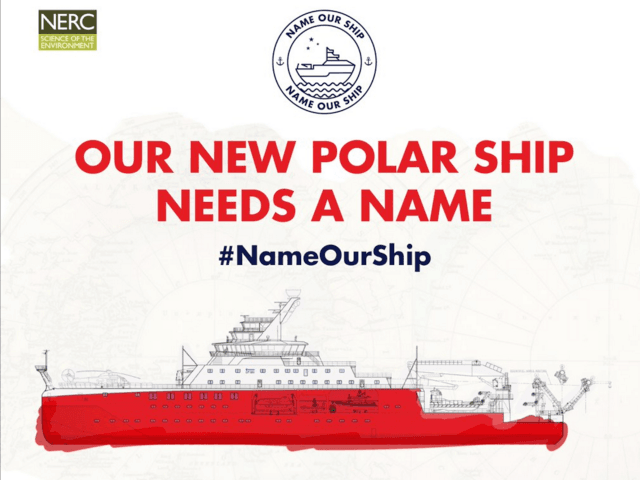Humor
See other Humor Articles
Title: Great British Public Votes For New Royal Research Ship To Be Named ‘Boaty McBoatface’
Source:
Breitbart
URL Source: http://www.breitbart.com/london/201 ... -to-be-named-boaty-mcboatface/
Published: Mar 21, 2016
Author: Liam Deacon
Post Date: 2016-03-21 08:38:02 by cranky
Keywords: None
Views: 2422
Comments: 8
“To celebrate the launch of our new research ship, we have launched the #NameOurShip campaign. Currently we’re calling her ‘NPRV’, which isn’t very catchy! So we’re inviting you to suggest a name for her”, announced a fancy new website last week. “Can you imagine one of the world’s biggest research labs travelling to the Antarctic with your suggested name proudly emblazoned on the side?” touted Science Minister Jo Johnson upon the vote’s launch. However, thanks to the familiar wry humor and insincerity of the great British public, the plan might just have backfired. Riding high in the polls, with more that twice the number of votes of any other suggestion, is “RRS Boaty McBoatface”. Followed by the equally insincere suggestions of RRS Pingu, RRS Usain Boat and RRS Big Floaty Thing. According to convention, such great British vessels are named after endeavoring and renowned explorers and adventurers. A more serious suggestion, in line with this tradition, is the Sir Ranulph Fiennes, named after the writer, explorer and holder of several endurance records. The Guinness Book of World Records named him as the world greatest living explorer in 1984. Sir Ranulph told the Daily Mail: “May the best Pingu win.” The £200 million Polar research vessel will be Britain’s biggest and most advance research ship yet, and is currently being constructed in Cammell Laird, Birkenhead. The ship will weigh 15,000 tonnes, have 20 science labs on board, and will carry nine double-decker buses’ worth of scientific equipment. Once complete in 2019, it will travel to the Arctic to carry out important research in polar environments using robotic, satellite and underwater monitoring technology, in order to investigate the alleged impact of supposedly changing global sea-levels.
A brand new, state of the art Arctic research ship is increasingly likely to be named the “RRS Boaty McBoatface”, after the British government had the bright idea of putting the naming process to a public vote.
Post Comment Private Reply Ignore Thread
Top • Page Up • Full Thread • Page Down • Bottom/Latest
Begin Trace Mode for Comment # 4.
#1. To: cranky (#0)
(Edited)
Can't see why they wouldn't name it RRS Big Red, there are no penguins "Pingu" in the Arctic
What's wrong with Big Floaty Thing?
Yes, I like that one much better. Boaty McBoatface is stupid.
The whole idea of asking the public to name government ships is stupid.
There are no replies to Comment # 4. End Trace Mode for Comment # 4.
Top • Page Up • Full Thread • Page Down • Bottom/Latest
#2. To: paraclete (#1)
#3. To: sneakypete (#2)
What's wrong with Big Floaty Thing?
#4. To: Pinguinite (#3)
Boaty McBoatface is stupid.
Replies to Comment # 4.
[Home] [Headlines] [Latest Articles] [Latest Comments] [Post] [Mail] [Sign-in] [Setup] [Help] [Register]
